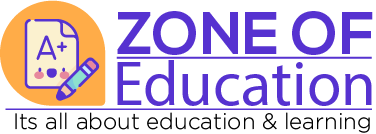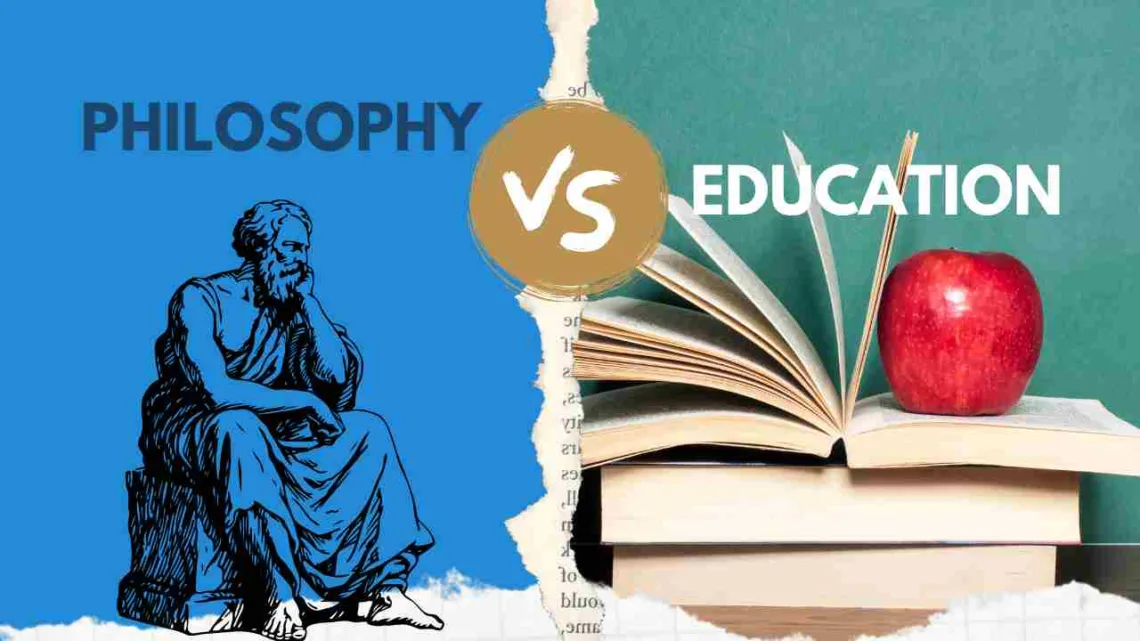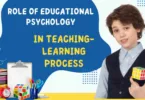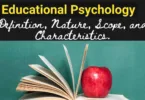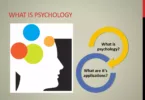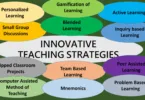To study the relationship between philosophy and education, we must remember that these are the two sides of one coin. In the vast cognition of human knowledge, few disciplines overlap as deeply and intricately as philosophy and education.
These two lies a rich and dynamic interplay that shapes our understanding of the nature of education, the purpose of learning, and the methods by which knowledge is acquired, transmitted, and applied. We will expore deeply the multifaceted relationship between philosophy and education, unraveling the philosophical underpinnings that inform educational theory, practice, and policy.
Education, as it is a vast field of study, finds its roots firmly embedded in the early period of philosophy. Philosophy serves as the bedrock upon which the edifice of education is constructed, providing the theoretical framework and guiding principles that shape its evolution and practice. This symbiotic relationship between philosophy and education is characterized by a dynamic interplay of ideas, values, and beliefs, each influencing and enriching the other in a continuous dialogue of enlightenment and inquiry.
What is Education
Education is the process of acquiring, imparting, or transmitting knowledge, skills, values, and character traits. It can also refer to the learning that results from this effort.
Education, in its essence, is more than a mere process of imparting knowledge; it is a transformative journey that enriches life by fostering the power and inclination to reason. It encompasses the development of innate human capacities and the cultivation of virtues essential for navigating the complexities of existence. Education, therefore, serves as an apprenticeship of life, equipping individuals with the skills, knowledge, and values necessary for personal growth and societal advancement.
The Interdependence of Philosophy and Education
Philosophy and education share a symbiotic relationship, each dependent on the other for its vitality and relevance. Education, in essence, is the practical application of philosophical thought, serving as a dynamic manifestation of philosophical ideals and principles. Conversely, philosophy provides the conceptual framework and guiding principles that underpin educational theory, practice, and policy, shaping its objectives, methods, and outcomes.
| Aspect | Education | Philosophy |
|---|---|---|
| Definition | The process of imparting knowledge, skills, and values to individuals through formal or informal means | The systematic study of fundamental questions concerning existence, knowledge, values, reason, mind, and language |
| Purpose | To enrich life, develop reasoning abilities, and cultivate virtues essential for personal and societal growth | To provide a framework for understanding the nature of reality, human existence, and ethical principles |
| Interdependence | Dependent on philosophical principles and beliefs for its theoretical foundation and guiding principles | Provides the conceptual framework and guiding principles that underpin educational theory, practice, and policy |
| Aims | Formulated based on philosophical insights and fundamental thinking about the purpose and goals of human existence | Reflect deep philosophical ideals about the nature of reality, the human condition, and the pursuit of knowledge |
| Curriculum | Reflects the aims and values of education prescribed by philosophy; designed to transmit philosophical values and foster holistic development | Informs the content and structure of the curriculum; shapes educational objectives, methods, and outcomes |
| Methods of Teaching | Informed by philosophical perspectives on education; vary based on philosophical beliefs about the nature of learning and the role of the teacher | Influences teaching methods; emphasizes different approaches to knowledge acquisition, skill development, and moral education |
| Concept of Discipline | Reflects philosophical precepts and ideological orientations; varies based on philosophical beliefs about human nature, morality, and social order | Informs disciplinary practices; emphasizes different concepts of discipline, such as natural consequences, inner discipline, or self-discipline |
| Role of the Teacher | Central to the educational process; informed by philosophical principles and pedagogical beliefs | Defined by philosophical traditions; varies based on philosophical commitments about the nature of knowledge, learning, and human development |
| Impact on Textbooks | Embodies philosophical values and cultural norms; reflects prevailing philosophical assumptions and ideological orientations | Reflects philosophical ethos and educational objectives; transmits knowledge and values aligned with philosophical principles |
Philosophy and Aims of Education
The aims of education, formulated by philosophy, reflect deep insights and fundamental thinking about the purpose and goals of human existence. Different philosophical traditions offer varying perspectives on the aims of education, ranging from the exaltation of human personality in idealism to the emphasis on self-preservation in naturalism and the focus on socialization in pragmatism. These aims serve as guiding beacons, illuminating the path toward personal fulfillment, social harmony, and intellectual enlightenment.
Education, far from being a mere transmission of knowledge, is a purposeful endeavor rooted in philosophical inquiry. It is through the lens of philosophical thought that we define the aims of education, establishing the very direction in which we want to guide young minds. These aims, diverse and multifaceted, illuminate the path towards a multitude of desirable outcomes, encompassing individual fulfillment, societal harmony, and intellectual enlightenment.
Different philosophical traditions offer distinct perspectives on the aims of education. Idealism, for instance, emphasizes the development of the individual’s potential, encouraging self-actualization and the cultivation of a well-rounded personality. In contrast, naturalism focuses on preparing individuals for the challenges of survival and adaptation, equipping them with the knowledge and skills necessary to thrive in the natural world. Meanwhile, pragmatism places emphasis on socialization and practical skills, recognizing the importance of preparing individuals to contribute effectively within a larger society.
These diverse aims, though distinct in their focus, are not mutually exclusive. They exist on a spectrum, each contributing valuable insights into the multifaceted purpose of education. Ultimately, by drawing upon the wisdom of various philosophical perspectives, we can strive to create a holistic educational experience that fosters individual growth, societal responsibility, and a lifelong pursuit of knowledge.
Key Points:
- The aim of education is informed by philosophical thought.
- Different philosophies offer varied perspectives on educational aims.
- Idealism emphasizes individual development.
- Naturalism focuses on survival and adaptation.
- Pragmatism prioritizes socialization and practical skills.
- Educational goals should strive for a holistic approach.
Philosophy and Curriculum
The curriculum, as the practical manifestation of philosophical ideals, reflects the aims and values of education prescribed by philosophy. Different philosophical perspectives inform the design and content of the curriculum, with idealism emphasizing the study of higher values such as ethics and literature, naturalism prioritizing direct experiences and physical sciences, and pragmatism advocating for functional subjects and problem-solving activities. The curriculum thus serves as a conduit for transmitting philosophical values and fostering holistic development.
The curriculum, the intricate tapestry of knowledge and skills woven within an educational environment, is deeply intertwined with underlying philosophical beliefs. Far from being a neutral collection of information, the curriculum reflects the fundamental values and goals that shape an educational system. This symbiotic relationship between philosophy and curriculum plays a crucial role in defining the learning experiences offered to students and, ultimately, the type of individual the education system aims to cultivate.
Different philosophical perspectives have distinct implications for curriculum design. Perennialism, emphasizing unchanging truths and universal values, promotes a curriculum centered on timeless classical texts and fundamental skills across various disciplines. In contrast, progressivism, which prioritizes critical thinking and problem-solving, advocates for a curriculum that is dynamic and responsive to the needs of the individual and society, often incorporating project-based learning and opportunities for student inquiry.
Choosing a curriculum approach isn’t merely an academic exercise; it carries significant ramifications. A perennialist curriculum focuses on developing reasoning and intellectual skills through an established body of knowledge, fostering a sense of tradition and cultural literacy. A progressive curriculum, on the other hand, encourages individual autonomy and critical thinking, empowering students to become active participants in their learning journey and preparing them for a rapidly changing world.
It is important to acknowledge that there is no single “correct” approach. The optimal curriculum often lies in a harmonious blend of philosophical perspectives, drawing strengths from various approaches and adapting them to the evolving needs of learners and society. Ultimately, the philosophy underlying the curriculum serves as the guiding light, illuminating the path towards shaping well-rounded individuals equipped with the knowledge, skills, and values needed to thrive in an ever-changing world.
Key Points:
- Philosophy shapes the values and goals reflected in the curriculum.
- Different philosophies lead to diverse curriculum approaches.
- Perennialism emphasizes enduring knowledge and skills.
- Progressivism prioritizes individual development and critical thinking.
- The best curriculum approach often blends various perspectives.
- The chosen philosophy guides the development of well-rounded individuals.
Philosophy and Methods of Teaching
Teaching methods, as the means by which knowledge is imparted and skills are acquired, are deeply influenced by philosophical perspectives on education. Naturalists prioritize motivation and direct experiences, idealists favor lecture and discussion methods to stimulate intellectual growth, while pragmatists advocate for socialized techniques and problem-solving approaches to engage students actively in the learning process. These diverse methods reflect the philosophical beliefs about the nature of learning and the role of the teacher in facilitating it.
The realm of teaching methods is not merely a collection of techniques; it is a nuanced symphony guided by the philosophical beliefs of the educator. Just as an orchestra conductor’s vision shapes the music played, an educator’s philosophical perspective influences their choice of teaching methods, ultimately dictating the learning environment and the student experience.
Different philosophies advocate for distinct teaching approaches. Essentialism, emphasizing the transmission of essential knowledge and skills, often favors teacher-centered methods like direct instruction and lectures. This approach aims to ensure students acquire the fundamental building blocks of various disciplines. In contrast, progressivism, valuing critical thinking and active learning, champions student-centered methods like project-based learning and group discussions. This approach encourages students to construct knowledge through exploration and collaboration.
The choice of teaching methods has significant implications for the classroom dynamic. Teacher-centered methods prioritize knowledge transmission and tend to emphasize order and control. In contrast, student-centered methods empower students to take ownership of their learning, fostering collaboration and critical thinking.
However, it’s crucial to recognize the complexity of this relationship. A skilled educator, much like a versatile conductor, can harmonize diverse philosophical perspectives. They can leverage teacher-centered methods for clear explanations and essential content delivery, while incorporating student-centered activities to encourage engagement and independent thinking.
Ultimately, the ideal teaching method is not dictated by a singular philosophy; it lies in the intentional and thoughtful integration of diverse approaches. By drawing guidance from various philosophical schools, educators can create a dynamic and engaging learning experience that caters to the individual needs of their students while fostering their intellectual and personal growth.
Key Points:
- Philosophy guides the selection of teaching methods.
- Essentialism advocates for teacher-centered methods.
- Progressivism promotes student-centered approaches.
- Teacher-centered methods prioritize order and knowledge transmission.
- Student-centered methods encourage collaboration and critical thinking.
- The ideal approach blends different philosophies to cater to individual needs.
Philosophy and the Concept of Discipline
Discipline, as an integral aspect of education, reflects philosophical precepts and ideological orientations. Different philosophical traditions offer distinct perspectives on discipline, with naturalists advocating for discipline through natural consequences, idealists emphasizing inner discipline of the mind, and pragmatists promoting self-discipline and freedom. These diverse concepts of discipline reflect deeper philosophical assumptions about human nature, morality, and social order.
Philosophy and the Role of the Teacher
The role of the teacher, central to the educational process, is informed by philosophical principles and pedagogical beliefs. Different philosophical traditions prescribe varying roles for the teacher, with idealism emphasizing inspiration and intellectual influence, naturalism focusing on providing educational environments, and pragmatism defining the teacher as a friend, guide, and philosopher. These diverse conceptions of the teacher reflect deeper philosophical commitments about the nature of knowledge, learning, and human development.
The concept of discipline within education is far more intricate than simply enforcing rules and maintaining order. It is a complex tapestry woven from the threads of philosophical thought, shaping the very essence of how educators approach student growth and development. Different philosophical perspectives offer diverse viewpoints on the nature and purpose of discipline, ultimately influencing the classroom environment and the values instilled within students.
Idealism, for example, emphasizes the importance of self-discipline as a key component of moral development. This philosophy views discipline as a tool for cultivating inner strength, self-control, and a sense of responsibility. Educators grounded in this perspective may prioritize fostering intrinsic motivation and self-directed learning, encouraging students to internalize positive behaviors and take ownership of their learning process.
Conversely, pragmatism places greater emphasis on external discipline as a means of ensuring social order and cooperation. This philosophy recognizes the importance of establishing clear expectations and enforcing consequences for undesirable behaviors. Educators influenced by pragmatism may utilize a more structured approach, employing rewards and sanctions to encourage compliance and promote positive interactions within the classroom community.
It is crucial to acknowledge that these contrasting approaches are not mutually exclusive. While idealism focuses on fostering intrinsic motivation and self-discipline, pragmatism recognizes the necessity of establishing clear boundaries and expectations. Ultimately, the optimal approach to discipline lies in striking a balance between these perspectives, creating an environment that fosters both individual responsibility and social coherence.
By drawing upon the wisdom of diverse philosophical perspectives, educators can cultivate a meaningful and effective approach to discipline. This approach should not be viewed solely as enforcing rules, but rather as a harmonious blend of guidance, support, and encouragement, empowering students to develop positive behaviors, self-regulation skills, and a sense of responsibility that extends beyond the classroom walls.
Key Points:
- Philosophy shapes the concept of discipline in education.
- Idealism emphasizes self-discipline and moral development.
- Pragmatism prioritizes external discipline and social order.
- Effective discipline balances both internal and external aspects.
- Philosophy guides educators towards a meaningful and empowering approach to discipline.
Philosophy and Textbooks
Textbooks, as essential tools for teaching and learning, embody philosophical values and cultural norms embedded within society. They reflect the prevailing philosophical assumptions and ideological orientations of a given time and place, shaping students’ understanding of the world and their place within it. Textbooks must, therefore, be aligned with the prevailing philosophical ethos and educational objectives to effectively transmit knowledge and values to future generations.
Philosophy: The Invisible Hand Shaping Textbooks
Textbooks, often perceived as mere repositories of information, play a more nuanced role in the educational landscape. They act as silent partners in the learning process, their content and structure subtly influenced by the philosophical underpinnings of education. This relationship between philosophy and textbooks extends far beyond simply conveying facts; it shapes the learning experience and the values inculcated within students.
Perennialism, emphasizing unchanging truths and classical knowledge, advocates for textbooks that serve as gateways to established works and fundamental concepts. These textbooks often feature excerpts from canonical texts alongside explanations and analyses, aiming to expose students to the bedrock of knowledge within each discipline.
In contrast, progressivism, prioritizing critical thinking and problem-solving skills, promotes textbooks that act as springboards for inquiry and exploration. These textbooks may present diverse perspectives, encourage open-ended questions, and incorporate engaging activities that challenge students to think critically and construct knowledge through active engagement.
The choice of textbook reflects the philosophical values the educators aim to promote. A perennialist textbook emphasizes memorization and mastery of established knowledge, fostering a sense of tradition and cultural literacy. A progressive textbook, on the other hand, encourages independent thinking and critical analysis, empowering students to become active participants in their learning journey and develop the skills necessary to navigate an ever-changing world.
It is important to note that textbooks are not static entities. They evolve alongside the educational landscape and societal needs. Skillful educators, aware of the limitations and benefits of different philosophical perspectives, can critically evaluate textbooks and supplement their content with additional resources and activities. This allows them to create a dynamic learning environment that caters to the diverse needs of their students and fosters a love of learning that extends beyond the pages of a textbook.
Key Points:
- Philosophy influences the content and structure of textbooks.
- Perennialism emphasizes established knowledge in textbooks.
- Progressivism promotes critical thinking through textbooks.
- Perennialist textbooks focus on memorization and tradition.
- Progressive textbooks encourage active participation and analysis.
- Educators critically evaluate and supplement textbooks for optimal learning.
What is the relationship between philosophy and education?
The relationship between philosophy and education is as ancient as civilization itself, rooted in the fundamental quest for wisdom, truth, and enlightenment. Philosophy, derived from the Greek words “Philo” (love) and “Sophia” (wisdom), is the relentless pursuit of knowledge and understanding through critical inquiry, reflection, and dialogue. Education, on the other hand, encompasses the formal and informal processes by which individuals acquire knowledge, develop skills, and cultivate values, ultimately shaping their intellectual, moral, and social development.
| Philosophical Tradition | Focus in Education | Key Aims | Implications for Curriculum and Teaching | Example |
|---|---|---|---|---|
| Idealism | Development of the individual’s potential | Self-actualization, moral development, critical thinking | Emphasis on timeless classical texts, personalized learning, fostering intrinsic motivation | Exposing students to great works of literature, philosophy, and art |
| Naturalism | Preparing individuals for survival and adaptation | Knowledge and skills for navigating the natural world, problem-solving | Focus on science, technology, engineering, and mathematics (STEM) disciplines, hands-on learning | Project-based learning in science, incorporating natural world exploration into various subjects |
| Pragmatism | Socialization and practical skills | Social responsibility, collaboration, critical thinking | Emphasis on real-world application of knowledge, project-based learning, service learning | Integrating current events and social issues, incorporating community engagement projects |
| Perennialism | Unchanging truths and universal values | Transmission of essential knowledge and skills, cultural literacy | Focus on established disciplines, mastery of core concepts, traditional teaching methods | Studying classic literature and historical texts, emphasizing logic and reasoning skills |
| Progressivism | Critical thinking and problem-solving | Lifelong learning, individual inquiry, social change | Emphasis on student-centered learning, project-based learning, collaborative learning | Open-ended questions, encouraging debate and questioning, incorporating technology for exploration |
The Foundations of Educational Philosophy
At the heart of educational philosophy lies a series of fundamental questions that have puzzled thinkers for centuries:
What is the purpose of education?
What constitutes knowledge?
How should learning be structured and facilitated?
These questions serve as the bedrock upon which educational theories and practices are built, drawing upon insights from various philosophical traditions to inform and guide our understanding of the educational enterprise.
Philosophical Perspectives on Education
Throughout history, philosophers from diverse cultural, religious, and intellectual traditions have grappled with the complexities of education, offering a myriad of perspectives on its nature, aims, and methods. From the ancient wisdom of Plato and Aristotle to the modern insights of John Dewey and Paulo Freire, each philosopher brings a unique lens through which to examine the educational landscape, shedding light on its philosophical underpinnings and implications for human flourishing.
Idealism and the Quest for Truth
One of the oldest and most influential philosophical perspectives on education is idealism, which posits that reality is fundamentally mental or spiritual and that the pursuit of truth and knowledge is the highest aim of human existence. Rooted in the teachings of Plato and his allegory of the cave, idealism emphasizes the importance of intellectual inquiry, moral development, and the cultivation of virtue in the educational process. For idealists, education is not merely the transmission of information but the awakening of the mind to the eternal truths that lie beyond the material world.
Pragmatism and the Primacy of Experience
In contrast to idealism, pragmatism emphasizes the practical consequences of ideas and the importance of experiential learning in the educational process. Championed by thinkers such as John Dewey and William James, pragmatism rejects abstract speculation in favor of empirical inquiry, problem-solving, and hands-on experimentation. According to pragmatists, education should be grounded in the lived experiences of students, fostering critical thinking, creativity, and adaptability in the face of uncertainty and change.
Existentialism and the Quest for Authenticity
Existentialism, another influential philosophical perspective on education, emphasizes the individual’s freedom, responsibility, and search for meaning in a seemingly indifferent universe. Rooted in the existential writings of Søren Kierkegaard, Friedrich Nietzsche, and Jean-Paul Sartre, existentialism challenges traditional notions of education as a process of socialization and conformity, advocating instead for authenticity, self-discovery, and personal transformation. For existentialists, education is not merely the acquisition of knowledge but the journey of self-realization and self-actualization in the face of life’s inherent absurdity and uncertainty.
Constructivism and the Active Learner
Building upon the insights of Piaget, Vygotsky, and other cognitive psychologists, constructivism posits that learning is an active, constructive process whereby individuals actively build their understanding of the world through interaction with their environment. Rooted in the belief that knowledge is not passively received but actively constructed by the learner, constructivism emphasizes the importance of hands-on exploration, social interaction, and meaningful engagement in the learning process. For constructivists, education is not about memorization or rote learning, but about empowering students to construct their own understanding of the world and actively participate in the co-creation of knowledge.
Take Home
The relationship between philosophy and education is profound and multifaceted, shaping our understanding of the purpose, nature, and methods of education. From the idealism of Plato to the pragmatism of Dewey, from the existentialism of Sartre to the constructivism of Piaget, each philosophical perspective offers valuable insights into the complexities of the educational enterprise.
To engage with these diverse philosophical traditions, educators can gain a deeper understanding of their own beliefs and assumptions about education, and explore new ways to enrich the learning experiences of their students. As we continue to navigate the ever-changing landscape of education, let us draw inspiration from the wisdom of the ages and embrace the transformative power of philosophy to illuminate the path toward a more enlightened and equitable future.
